Page 315 • (3,211 results in 0.023 seconds)
-
teachers,” Kaufman said. “The idea is that good teachers don’t give as much to research.” Kaufman is the sixth PLU faculty member to receive the award. Past recipients include Provost Patricia Killen (1991), history professor Beth Kraig (1993), associate English professor Lisa Marcus (1997), associate English professor Jim Albrecht (1999) and associate religion professor Alicia Batten (2007). Only one faculty member from each eligible college can apply for the honor, Kaufman explained. Along with the
-
jewelry design, to rapid prototyping and graphic design. At PLU, an obvious use of the software is in sculpture classes. Artists typically construct a scaled-down, 3-D model of their sculpture first in cardboard or clay, but editing the model is labor-intensive, Ebbinga said. In Rhino, artists can create the model and easily make adjustments. The software can also be used in math courses. Ebbinga is currently collaborating with associate math professor Daniel Heath, who studies complex knots. The
-
Nordquist Lecture Hall. Human beings share the planet with millions of species – in fact more are being discovered each day, O’Brien notes. “If we believe that all this was created by God,” O’Brien said. “Then when scientists studying this world say it is in trouble, we should pay attention to that.” In fact, it’s not enough to just shake one’s head when you hear about the plight of the polar bear, or some other threatened species, O’Brien said. “You hear about their habitat being destroyed, and the ice
-
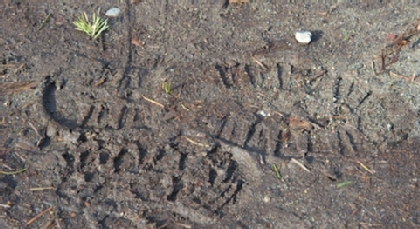
everyone being that way,” Cooley said. “Really, what’s most important is everybody making the little changes.” Reducing surplus by being smarter buyers makes an impact, Cooley said. “It’s not just about recycling,” she said. With campaigns like UnPLUgged, student residence hall communities are becoming more conscious about turning stuff off and unplugging devices when they’re not in use. There are also actions like identifying vending machines that aren’t being used, but cost more in electricity than
-
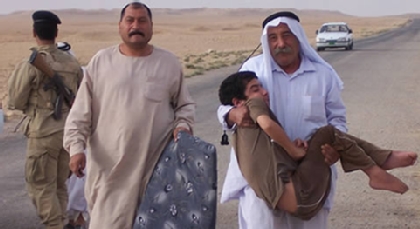
difference and wasn’t sure what he should do. Brown told him what he’d seen with his own eyes. Blauser asked, “What do you need?” Brown replied, “What I really need are pediatric wheelchairs.” And so began Wheelchairs for Iraqi Kids. Before Brown knew it, Blauser had taken charge of finding wheelchairs, funding, and anything else he could think of to propel their vision. “It’s easy to be frustrated when you see a great need,” Brown said, “and you don’t think you have the resources to meet the need.” It
-
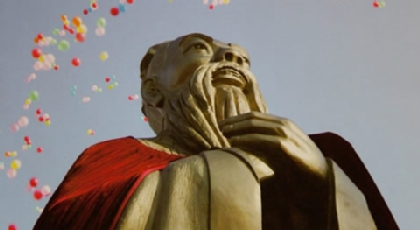
November 10, 2010 Reviving Confucianism By Chris Albert As part of the PLU Chinese Studies Program lecture series, Daniel A. Bell will visit campus to examine the revival of Confucianism as the moral foundation for political rule in China. Confucianism is making a comeback in Chinese debate about moral and political foundation. Below is a video with the last lecturer in the series, journalist Martin Jacques. “We stand at a moment in history where we can decide to be friendly competitors or
-
March 24, 2011 Actor finds community, continuity fuels his work Danforth Comins ’97 is an Old Timer. He is, at least, compared to many other resident actors at the Oregon Shakespeare Festival. In his ninth year at the country’s largest resident theater, he has spent a comparative lifetime at the Ashland, Ore., company. The ability to settle-in and become a part of the local community is one of the things he loves about his work with the company. “I’m unlike so many people in my profession – I
-
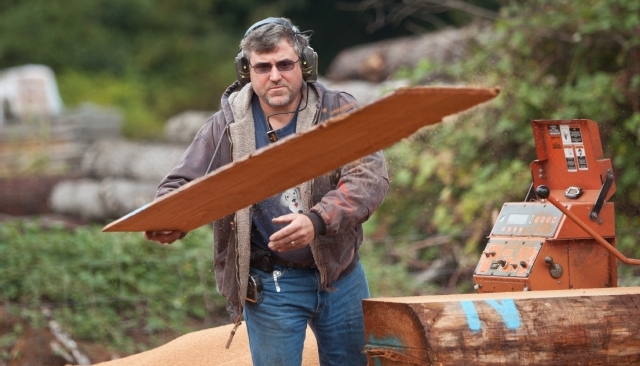
had been snapped off by a tourist. Although the wood has been installed in Eastvold, this doesn’t mean Fry will cut his business connections with his alma mater. He still has huge logs stacked up on his back lot – watched over by a bored llama that his former partner left him to take care of – that will also be milled for projects on campus, such as replacing the furniture at Eastvold Chapel, or creating at table for Gonyea House. “I guess that’s what I like about my job,” Fry said. “There’s
-
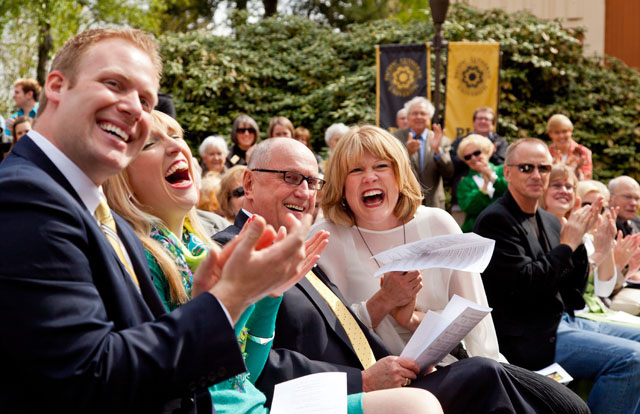
said that, ‘My wildest hopes and dreams never went this far,'” Anderson said. He noted that leading PLU from 1992 through this year “has been winning the masters for me” and that he leaves with a “profound sense of gratitude and humility.” He also praised the campus community members for the work they do each day to make PLU a great place. “There is no greater calling in God’s kingdom than building for the future, and that’s what happens here every day,” he said. Read Previous Lives of Service
-
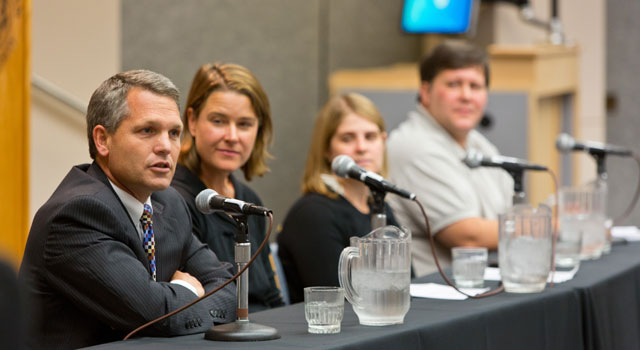
Center. “Trust your instinct to follow what inspires you.” When Anderson was finishing his degree in religion at PLU he wondered what he should next. He was advised to work with old people. Anderson wasn’t sure how to make that a vocation, but his advisor told him, “It’s alright. Ill teach you what to do.” When it was time for Alexander to choose his major, it came down to the study of people for him. Anthropology was a chance to explore how people function and work within society. He applied to work
Do you have any feedback for us? If so, feel free to use our Feedback Form.


